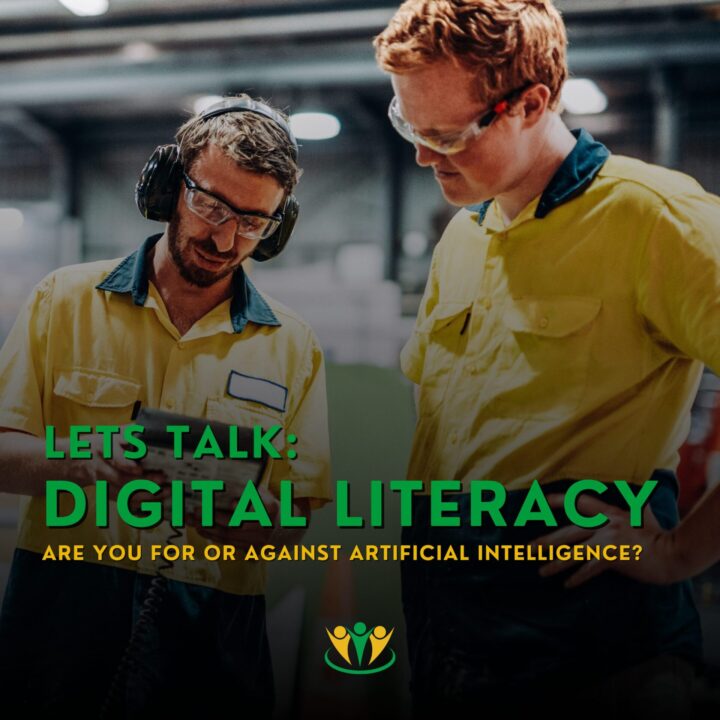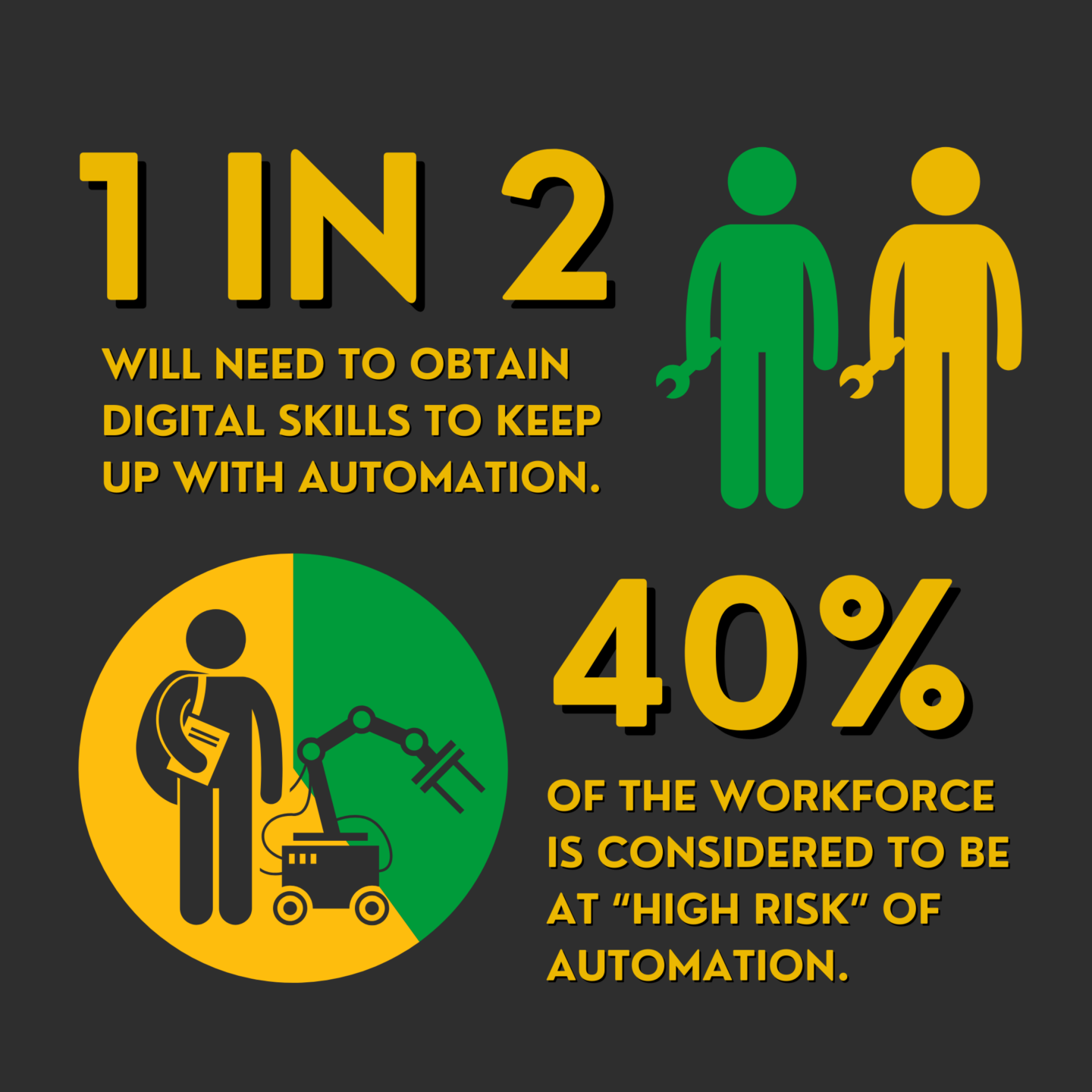Lets Talk: Digital Literacy and Artificial Intelligence.
Staff Australia has offered employment support to job seekers and employers over 25 years, and during this time, we have seen some significant digital transformation, including an increased adoption of artificial intelligence (AI) and an increased need for job seekers to obtain and develop digital literacy skills.
So, what is digital literacy? To put simply, digital literacy refers to one’s ability to use computers, mobile devices, software, and internet resources to deliver the desirable results and outcomes.
We have seen a growing desire from many businesses who wish to implement and develop a more technologically driven workforce. As a result, there is an increased need for job seekers to demonstrate digital literacy skills during the recruitment and onboarding process, even in industries like warehousing, logistics, and manufacturing.
These industry sectors are increasingly adopting more advanced technologies, from inventory management systems to automated machinery. Therefore, having a solid understanding of digital tools can significantly enhance your employment potential.
But as technology advances, many people ask:
Are you for or against artificial intelligence (AI) in the workplace?
Over the last few decades, most notably in the last 10 years, Artificial intelligence (AI) has transformed and changed the Australian workforce dramatically. Becoming an integral part for many industry sectors including manufacturing, logistics, customer support and healthcare; Artificial Intelligence (AI) has been the centre of many debates for years. These discussions often raise important questions around the impact AI will have on employment, job security, and overall business ethics.
The Pros of Artificial Intelligence:
Those who advocate for the future of digital transformation, often argue that supporting the future of Artificial Intelligence (AI) will boost efficiency, reduce human error, and open up new job opportunities. Further benefits also include:
- Increased workplace productivity.
- Reduction in costs for labour and resources.
- More informed and efficient decision-making.
- An increase in operational capabilities as websites and technology provides 24/7 support.
- The development of innovative products and services.
The Cons of Artificial Intelligence:
On the flip side, many people are against the future of Artificial Intelligence (AI) and are against digital integration. Fearing that AI might lead to job loss, ethical concerns, dehumanisation, and security threats. However, Artificial Intelligence is expected to greatly enhance the future of work by driving innovation, therefore creating entirely new job categories.
Using AI for Interview Preparation
Here’s how you can use Artificial Intelligence to assist you with interview preparation:
- Conduct mock interviews: By utilising AI, you can practice and prepare for an interview before you get there. AI-powered platforms such as Huru AI or Sapia AI can be used to simulate real interview environments, refine your responses, and build self-confidence.
- Get personalised feedback: Using an AI powered platform to practice can provide you with useful tips and insights on speech clarity, response accuracy, and body language which will help you to improve.
- Tailored questions: AI tools like ChatGPT can be used to generate practice questions relevant to your specific job and industry for better preparation.
- Speech and language tools: Tools like Grammarly can further assist you with your written and verbal communication skills to help you deliver clear and professional responses.
- Confidence boosting: Regular practice can build familiarity and reduce anxiety. Helping you to present yourself confidently when you enter the interview room.




